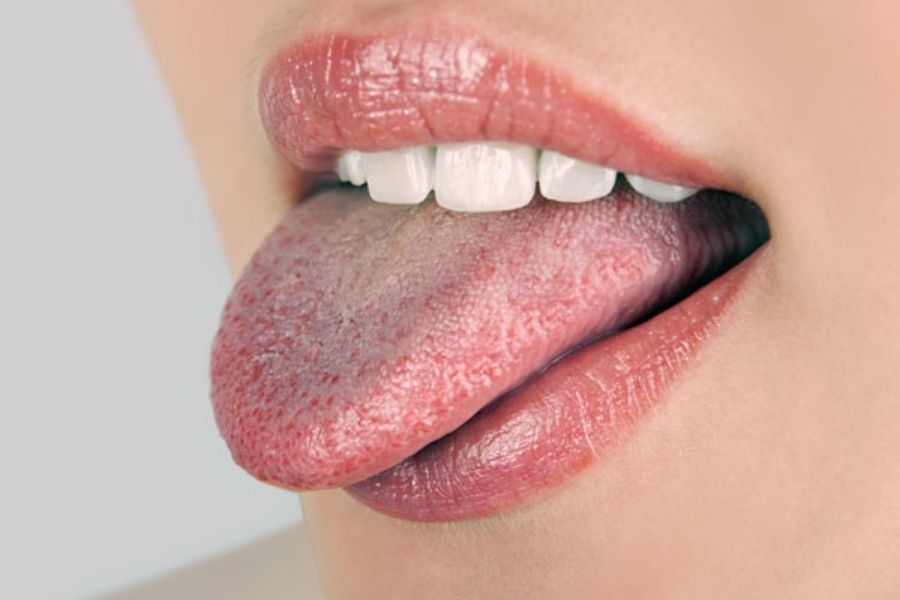Our body’s different systems are interconnected with each other and function together for healthy well being. Here what you get to know is the correlation between diabetes control and oral health, which brings us to question whether diabetes control important for healthy teeth or not? You may get surprised to hear diabetic patients pose problems to the oral cavity due to uncontrolled sugar levels and vice versa.
Why are people with diabetes more prone to dental problems? The high sugar levels may weaken the immune system as white blood cells count drops down, which results in infections.
Studies suggest that controlling blood glucose levels is important to keep all the health complications at bay. Another side is also the fact that oral health is the window of your overall health.
What Are The Complications Diabetic Patients May Go Through?
1. Dry Mouth

It is the condition (Xerostomia) when there is not enough saliva flow to keep your mouth moist. It is the diabetic medications for unstable blood glucose levels, and others are age, nerve damage, tobacco use, cancer treatments, etc.
Saliva contains the enzyme lysozyme required to attack the cell wall of bacteria, and without it, there would be uncontrolled growth. A low level of saliva secretion can further lead to ulcers, cracked or chapped lips, soreness, tooth decay, infections, dehydration, etc.
2. Periodontal Disease

There is a strong link between diabetes and periodontal disease. But first, what is periodontal disease? Periodontal disease is the infection of gums because of plaque buildup due to bacterial growth in the mouth.
But why people with diabetes are more likely to suffer from gum infection?
Diabetes causes thickening of blood vessels, which slows down the flow of nutrients and removes waste from body tissues that lead to infection. An infection might further progress due to weakening immunity.
It hardens into tarter form if plaque is untreated. It may further cause swollen gums, redness, loose teeth, chronic bad breath, bleeding while brushing teeth, or tooth loss if surrounding tissues got damaged. Likewise, severe gum disease also affects the blood sugar level and exacerbates diabetes symptoms.
3. Burning Mouth Syndrome

So how diabetes and burning mouth syndrome are connected? People with diabetes have low immune power, so they are more susceptible to oral infections. Patients may experience the symptoms such as dry mouth, tingling on the tongue or numbness, metallic or bitter taste in the mouth.
Another indication is that medication means these drugs destroy the natural moisture from the mouth, causing decreased bacterial clearance. But additionally, these antidiabetic medicines do benefit in a way, giving pain-relieving effects.
4. Poor Healing Of Oral Tissues

After oral surgery or any dental treatments, people with uncontrolled diabetes do not recover speedily due to blood flowing vessels in a nearby treatment area got damaged.
5. Thrush

Diabetic patients, to protect against infections, frequently take antibiotics. But bacteria enjoy sugar. So, do fungi develop the yeast infection referred to as thrush in people with diabetes? This fungus grows on high glucose levels and causes mouth and tongue infection. Sometimes, thrush may give white or red patches on the tongue and inside cheeks that might turn into open sores.
Essential Preventive Tips For Diabetics To Protect The Oral Cavity

Whether a diabetic or non-diabetic person, it is vital to follow some oral hygiene practices.
- Brushing your teeth twice after every meal using a soft-bristled toothbrush.
- If using dentures, then clean them daily.
- Do flossing every day to prevent plaque buildup.
- Consult your dentists regularly at least twice a year and disclose your diabetes.
- If you notice gum disease symptoms, visit the dentist immediately and give details of medications you are taking, which help practitioners provide the best treatments.
Important Things You Must Consider
- Keep your blood sugar levels under check to prevent any dental complications.
- If your sugar level is not in range with diet or medications, then immediately contact the physician.
- Check your mouth regularly for any abnormalities such as dryness, white patches, or bleeding as you take anti-diabetic medicines.
- If you have scheduled any dental surgeries, make sure to check your sugar level; otherwise, you may need to postpone the surgery as the possibility of post-surgery infection may develop.
- Always follow the dentist’s post-treatment instructions closely to avoid any danger.
- Take enough rest and reduce stress to boost your immunity to defend against infection.
- Eat a portion of healthy food with all essential nutrients and exercise or walk regularly.
- Don’t clench or grind your teeth as it may put pressure on tissues and destroy them.
Treatment
A treatment plan for oral complaints with diabetes depends on cases and their severity. For example, gum disease can be treated with scaling or antibiotic medications, or in rare cases, surgery might be required to prevent tooth loss.







